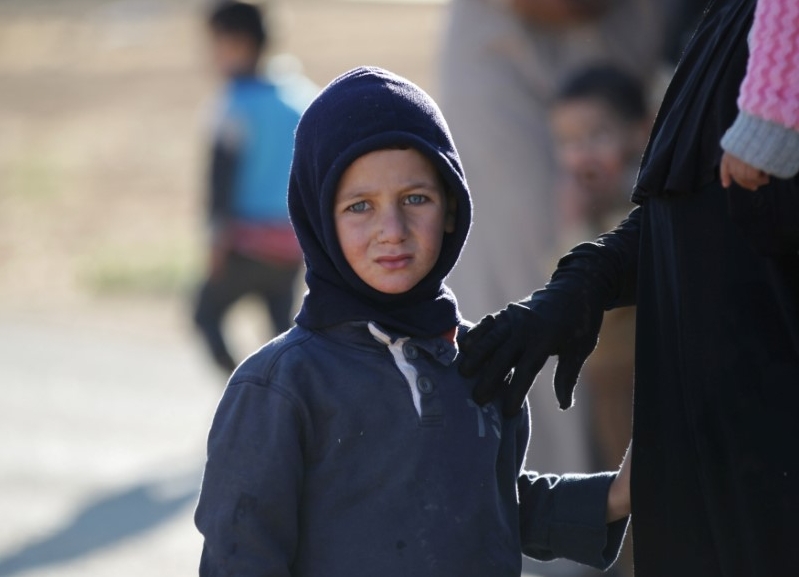
Syrian families who escaped ISIS' so-called capital of Raqqa, Syria, have shared the horrors they were exposed to under the terrorist group's leadership, including witnessing militants carry out countless public amputations, some of them against children.
The family, who asked to remain anonymous for fear of retribution against them or their family members, told Sky News the boy was a orphaned neighbor who attempted to exchange a stolen car battery for food. The man he tried to bargain with informed the ISIS authorities, who then amputated the hand of the 11-year-old boy, forcing the local community to watch.
''They used a sword ... they put a block of wood underneath his hand, put his hand on it and said this stole a car battery ... they didn't say he was an orphan," the family's mother said. "They said this hand has stolen and he had to be punished and they cut his hand off."
Traumatized by what they were forced to witness, the children now have nightmares and find it hard to sleep.
Another mother, who was trying to raise four sons and a daughter alone after her husband was killed in an airstrike, shared how she was pressured into "selling" her 14-year-old daughter in marriage to an Egyptian ISIS fighter who was 29 for $500 worth of gold.
"My daughter said, 'My mother, do you think if my father was alive, he would accept this marriage?'" the woman said.
The teenager told Sky News, "He told me to carry a weapon and to stay with them. I told him, "please I want to leave now."
"She is a baby. How can they let her carry a weapon?" her mother added. "At her age, she should be in the ninth grade. She is still playing on the swings with her little friends. She's not interested in guns. When you enter their areas, it is terrifying: you see ammunition and weapons."
Raqqa first fell into rebel control in March 2013 after a battle between Al Qaeda-linked jihadi group Al Nusra and Syrian President Bashar Al Assad's regime, becoming the first provincial capital under rebel control. ISIS has since used the city as a launching point to increase their caliphate,
Currently, the U.S.-led coalition continues to support Iraqi forces as they prepare for the battle to liberate Mosul, Iraq's second-largest city that was overrun by ISIL in 2014.
Brigadier General David Anderson told reporters on Wednesday that the fate of Mosul and Raqqa will be interlinked, as both are capitals of ISIS' caliphate.
"There's a linkage between the two. Ideally, both could be pressured at the same time, because I think if I was in Mosul and I needed somewhere to go, I would go to Raqqa if I wanted to maintain the fight," he said. "[They] both matter an awful lot to [ISIS] and I think that probably Raqqa matters more," Anderson said.
"If Mosul falls first, there is the potential for fighters to be able to reinforce into Raqqa. But beyond that, it would literally be crystal balling and I don't know any more than that," he concluded.
On Thursday, Deputy Defense Secretary Bob Work said the terrorist group will soon be "ejected" and "defeated" and referred to militants in Raqqa as "dead men walking".
"The Department of Defense is focused on one key thing: and that is ... inflicting a lasting defeat on ISIL," Work said. "They will be ejected and they will be defeated. It's only a matter of time. That's what we're focused on and there is no doubt in my mind that we will defeat ISIL as a state."







